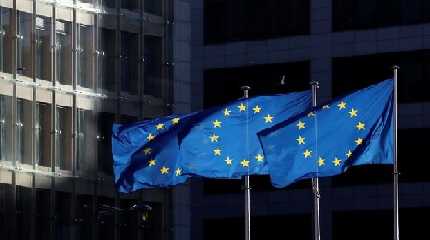
MOSCOW, February 14. /TASS/: The European Union will not use preventive sanctions against Russia due to the situation around Ukraine because of the position of a number of European countries that advocate a more balanced and moderate approach towards the Russian Federation, Deputy Director at the Center for Comprehensive European and International Studies at the National Research University Higher School of Economics, Valdai Club expert Dmitry Suslov said in an interview with TASS on Monday.
"Some EU member states continue to support reducing the scale of anti-Russian sanctions. Thanks to the position of these countries, firstly, we are not talking about the introduction of preventive sanctions. Let me remind you that certain EU members, particularly Poland and the Baltic states, have publicly advocated for the imposition of precautionary measures against Russia. That is, there is no and will be no invasion of Ukraine, and they have already campaigned for preventive sanctions. This is unlikely to happen due to the positions of other EU members that are more constructively minded," the expert noted.
Such countries, according to Suslov, include Italy, Spain, Greece, Cyprus, and to a large extent France and Germany. In addition, Austria and Hungary also "do not favor tough anti-Russian sanctions and insist that they be relaxed". "It appears to me that the alignment of forces on the issue of sanctions against Russia has not fundamentally changed since 2014, that is, since the beginning of the Russian-Western confrontation and the Ukrainian crisis," the analyst stressed.
Moreover, many EU countries oppose other instruments of pressure on Russia, the expert said. "Italy, Greece, Cyprus, Spain, Hungary support a minimal approach, taking into account both US pressure and the need to ensure a single European Union policy towards Russia," he said. "These countries also advocate reducing the scale of those sanctions that may be introduced against Russia was in the case of an alleged full-scale military escalation with Ukraine. In particular, recently it has been said more and more that Russia, most likely, will not be disconnected from the SWIFT international interbank system, because a number of EU member states are not ready for this," the expert added.
At the same time, Suslov noted that none of the EU countries is ready to oppose anti-Russian sanctions in general. "None of the European Union's member states, even those that openly declare themselves friendly to Russia, are ready to block the imposition of anti-Russian sanctions, because this would contradict the EU's common position, the EU's common foreign policy, and would mean too decisive a break with the United States," he added.
Western countries, as well as Kiev, have recently raised the possibility of a Russian invasion of Ukrainian territory. Russian presidential spokesman Dmitry Peskov called the reports an empty and baseless escalation of tensions, emphasizing that Russia poses no threat to anyone. At the same time, he did not rule out the potential of provocations to justify such claims, and he warned that using force to address the problem in southern Ukraine would have the most serious implications.




